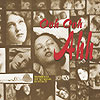 Two of the more enduring themes of Daz and Anthony's brekkie show are sex and Serge Gainsbourg, so its only natural that this compilation would be featured on the segment...
Two of the more enduring themes of Daz and Anthony's brekkie show are sex and Serge Gainsbourg, so its only natural that this compilation would be featured on the segment...
When Gainsbourg's orgasmic anthem "Je T'Aime... Moi Non Plus" moaned its way into the charts in 1968, it inspired a multitude of lesser artists, working in a variety of styles, to record their own "three-minute-climax" tracks. For the first time, the results of these musical exertions have been gathered together on a single CD, Ooh Ooh Ahh: Moments of Musical Ecstasy. Real Audio samples of the sleaze it contains can be heard here, and the CD itself can be purchased through Surefire Distribution.
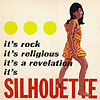 In the stiff-collared world of the Lutheran priesthood, John Rydgren stood out as the very epitome of suave (but slightly surreal) Christian cool... For much of the late 60's, his magnificent basso profundo voice could be heard on American radio delivering Acid-fried musings on God's relationship to the world of drugs, psychedelic rock... and miniskirts. These "sermons" were laid down over collages of psych, lounge music and sound effects, and given suitably hip titles like "The Happening", "Rinky Dink" and "Groovin On A Saturday Night".
In the stiff-collared world of the Lutheran priesthood, John Rydgren stood out as the very epitome of suave (but slightly surreal) Christian cool... For much of the late 60's, his magnificent basso profundo voice could be heard on American radio delivering Acid-fried musings on God's relationship to the world of drugs, psychedelic rock... and miniskirts. These "sermons" were laid down over collages of psych, lounge music and sound effects, and given suitably hip titles like "The Happening", "Rinky Dink" and "Groovin On A Saturday Night".
Probably the most famous of them was "Music To Watch Girls By". In it, Big John attempts to transform perving at women into a righteous activity... Download and enjoy (but be warned, it may offend those with politically correct sensitives.)
If you like that mp3 (originally posted on the 365 Days Project), there's an even scarier one called "Teen's Prayer" over at Show And Tell Music, in which Rydgren seems to be simulating the experience of a very bad trip. Do not listen to THAT under the influence of anything...
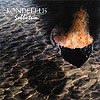 Rondellus are a Renaissance/early music group from Estonia who in 2003 recorded Sabbatum, an album of Black Sabbath covers performed in a medieval style, using instruments such as the lute, harp, hurdy-gurdy, psaltery and frame drum, and sung entirely in Latin... The result is a thing of transcendent beauty dominated by vaulting Gregorian-chant-style vocals that one would never associate with Ozzy Osborne and co. Samples of these angelic renderings of the Sabbath's work are available from the album's website. (The album itself can be purchased through CD Baby.)
Rondellus are a Renaissance/early music group from Estonia who in 2003 recorded Sabbatum, an album of Black Sabbath covers performed in a medieval style, using instruments such as the lute, harp, hurdy-gurdy, psaltery and frame drum, and sung entirely in Latin... The result is a thing of transcendent beauty dominated by vaulting Gregorian-chant-style vocals that one would never associate with Ozzy Osborne and co. Samples of these angelic renderings of the Sabbath's work are available from the album's website. (The album itself can be purchased through CD Baby.)
(Footnote: Sabbatum actually won best classical CD at the 2003 Estonian Music Awards... Pretty damn enlightened people, these Estonians!)
 If you like the idea of high concept reworkings of metal standards but prefer something that actually rocks, then check out Japanese vocalist Dokaka... When the bassplayer in the band he drummed for failed to turn up for a practice, Dokaka tried humming his basslines and turned out to be so good that the band's singer suggested he do a professional recording. Dokaka took up the challenge and applied his talents to other instruments; ultimately producing entirely acapella versions of songs by Metallica, Nirvana, Iron Maiden and even Stevie Wonder.
If you like the idea of high concept reworkings of metal standards but prefer something that actually rocks, then check out Japanese vocalist Dokaka... When the bassplayer in the band he drummed for failed to turn up for a practice, Dokaka tried humming his basslines and turned out to be so good that the band's singer suggested he do a professional recording. Dokaka took up the challenge and applied his talents to other instruments; ultimately producing entirely acapella versions of songs by Metallica, Nirvana, Iron Maiden and even Stevie Wonder.
He posted these recordings on the IUMA website and, in no time at all, he was a star with offers of gigs as far afield as Seattle. Now, he's moved to a dedicated domain and the latest news is that he's just finished recording with Bjork.
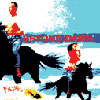 For the final portion of this segment, we turn to the strange and frightening world of Norwegian black metal... With their heyday of church burnings and murder trials behind them, some members of this satanic doom-core fraternity have decided that it is time to "mature" musically. This has meant embracing techno-pop and becoming as "unmetal" as possible...
For the final portion of this segment, we turn to the strange and frightening world of Norwegian black metal... With their heyday of church burnings and murder trials behind them, some members of this satanic doom-core fraternity have decided that it is time to "mature" musically. This has meant embracing techno-pop and becoming as "unmetal" as possible...
The result is a genre which has become known as "lounge-core". The foremost exponents of this not-really-metal-anymore music are Beyond Dawn, who sound like Depeche Mode on lithium. (Their latest, and most lounge-core album, Frysh, is available from Aquarius Records. Here's an mp3 off it called Righteous Underground.)
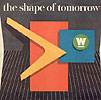 In the days before training videos, team-building workshops and Anthony Robbins, corporations routinely entrusted top Broadway producers with the task of motivating employees and inspiring company loyalty.
In the days before training videos, team-building workshops and Anthony Robbins, corporations routinely entrusted top Broadway producers with the task of motivating employees and inspiring company loyalty.
To achieve this, the producers devised lavish, high-quality stage musicals; usually based around new product lines or the joys of working for the company. In some cases, A-list composers, like Raymond Scott, or Kander and Ebb (of Cabaret fame), were called in to write the music. And the companies who commissioned them would even go to the expense of pressing albums of the soundtracks... All this for something that would generally only be staged once - at an annual conference or national convention...
Although the staging of these "industrial musicals" was a fairly widespread practice that continued well into the 1980's, the music from them is relatively hard to come by. (This is largely because the recordings of these "events" were kept in-house, and only ever given away to employees as souvenirs.)
The material that is out there, however, is seriously... out there. Take this track, for instance - the legendary classic My Bathroom Is A Private Kind Of Place (originally posted on 365 Days). It comes from a 1969 musical commissioned by bathroom fitting maker, American Standard. The show revolved around a mythical goddess called Femma - "the leader of all women's movement" - and her efforts to bring about a "bathroom revolution"... In the song, which serves as a bit of a scene-setter, a woman croons about her bathroom being "a very special kind of place" in which she can "dream and cream all day".
If you like this and want to hear more corporate whimsy, then you can either track down a copy of the almost-impossible-to-find compilation, Product Music (on Japanese boutique label Honest-Abe) or sample some of the streamed audio on The David Letterman Show site. For a good background on the genre, check out this article on Perfect Sound Forever.
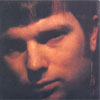 Revelation of the week: Van Morrison is a great comic songwriter! As evidence of this, I submit the legendary Final Bang Sessions...
Revelation of the week: Van Morrison is a great comic songwriter! As evidence of this, I submit the legendary Final Bang Sessions...
In 1967, shortly after recording "Brown-Eyed Girl", Van had a serious falling-out with his label, Bang Records, but found that he was contracted to record one more album before he could leave. With bile coursing through his veins, the pissed-off young "musical visionary" went into the studio and churned out 30 stream-of-consciousness songs that took about as long to write as they did to record.
The results were a mixture of petulant denunciation, banal doggerel paraphrased in as many ways as possible, and the occasional masterpiece of inspired surrealism. The highlight being his heartfelt ode to intestinal parasites, "Ringworm"... Even if you hate the rest of Van's serious output, I promise that you will love this... Download and enjoy. (The rest of this magnum opus can be downloaded from EMusic. The mp3 I've posted was originally part of the now-defunct 365 Days Project.)
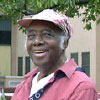 William "Shooby" Taylor was, quite possibly, the weirdest vocalist ever to have lived. A scat singer, who remained largely unknown throughout his 40 year career, Shooby took this already unusual singing style to mind-boggling extremes. In an effort to express the joyously unhinged music in his head, he concocted a baroque vocabulary of raw-shaws, tweeding-das and sidily doot-in-doot splaws, and used it to scat manically over anything from the Ink Spots to Johnny Cash to "Over The Rainbow".
William "Shooby" Taylor was, quite possibly, the weirdest vocalist ever to have lived. A scat singer, who remained largely unknown throughout his 40 year career, Shooby took this already unusual singing style to mind-boggling extremes. In an effort to express the joyously unhinged music in his head, he concocted a baroque vocabulary of raw-shaws, tweeding-das and sidily doot-in-doot splaws, and used it to scat manically over anything from the Ink Spots to Johnny Cash to "Over The Rainbow".
He only became known to the wider world in the early 90's when an electrician at the NJ radio station WFMU played a copy of his only album, Human Horn (recorded in the 80's), to resident DJ, Irwin Chusid. By this time, however, ailing health had brought his performing career to an end. (He was even forced to turn down an appearance on The David Letterman Show in 1995.) He finally passed away in June 2003.
(Postscript: Despite the cult following he acquired in the last years of his life, there are still no plans to re-issue the impossible-to-find Human Horn. In the meantime, the only way to experience Shooby is by either buying the Songs In The Key Of Z CDs (which I wholeheartedly recommend) or downloading mp3s of his work from shooby.com.)
 Take a one-minute vacation from the life you are living...
Take a one-minute vacation from the life you are living...
Since January 2003, professional field recordist Aaron Ximm has curated a web-site called One-Minute Vacations on which he invites anyone to submit a 60-second mp3 recording of the ambient sounds of a place they have visited. Each week he posts one of these mp3s on the site. The result is vast array of aural snapshots from every corner of the globe; some of which are accompanied by the most amazing stories. To give you a taste, here are the three one-minute-vacations (and their accompanying write-ups) that were featured on the show:
Elephant Island, Antarctica: "I went on a trip with my family, for fun, for about two weeks in February, 2001... The day I made this recording, we were taking a tour of an abandoned research site on Elephant Island. The woman who was singing is a marine biologist in her 50s. She's withered and tough and somewhat shy. But she took us into the oil drum to demonstrate its acoustic qualities, and let a sound come out of her that was so angelic it brought tears to my eyes..." Jules Bernstein
Budapest: "While walking along Vaci Utca, on the Pest side of Budapest in August of 2001, I encountered an eccentric elderly man singing in tongues and tones while playing what appeared to be homemade stringed instruments. The voice in the background towards the end of the recording was a man attempting to serve as an accomplice in relieving tourists of their Forint (HUF) — or perhaps he was simply a voluntary interpreter." Shoepal
Paro, Bhutan: "In October of 2001, the town of Paro, Bhutan opened its first Internet cafe. As with any new business venture, this was done with an all-day blessing ceremony. I happened to be in town and was invited to attend. There was a lama and a half dozen monks in the back room, thick incense smoke, drums, flutes, food and drink offerings, and painted scrolls on the walls. At one point they all went to the front of the shop and threw holy rice on the computers." Brian Romer
 Back in 1997, a group of egghead wags at the Vienna-based Institute of Transacoustic Research came up with one of the more-inspired ideas in recent avant-music history... An orchestra in which every instrument is a vegetable.
Back in 1997, a group of egghead wags at the Vienna-based Institute of Transacoustic Research came up with one of the more-inspired ideas in recent avant-music history... An orchestra in which every instrument is a vegetable.
After a bit of experimentation, they came up with a whole larder full of playable produce. Some of the veges, like the gurkophone (pictured), were hollowed-out and perforated to form woodwind-type instruments; others were contact-miked then either drummed, rubbed together, or simply sliced and diced. The instruments would be assembled fresh before each Vegetable Orchestra concert then, at the end of the gig, turned into a tasty soup and served to the audience.
To date, there are two Viennese Vegetable Orchestra CDs available through their website (along with mp3s). Of these, the pick is probably their more recent effort, Automate, on which they attempt (surprisingly successfully) to replicate a variety of styles of electronic music. (There's even a Kraftwerk cover in there.) But the rawer and more diverse first CD, Gemise, is still worth getting. (If only because it has actual beans embedded in the case so you can shake along with your favourite track.)
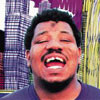 Wesley Willis is one of the true icons of outsider music. This obese African-American schizophrenic from Chicago seemed destined for an anonymous life of either homelessness or institutionalisation before "discovering" the delights of preset Casiotone rhythms in 1990, and embarking on one of the most staggeringly prolific songwriting careers of recent times. In the 13 years that followed, he recorded 30 albums (2 of which were actually released by a major label) and wrote 35,000 songs.
Wesley Willis is one of the true icons of outsider music. This obese African-American schizophrenic from Chicago seemed destined for an anonymous life of either homelessness or institutionalisation before "discovering" the delights of preset Casiotone rhythms in 1990, and embarking on one of the most staggeringly prolific songwriting careers of recent times. In the 13 years that followed, he recorded 30 albums (2 of which were actually released by a major label) and wrote 35,000 songs.
Sure, they were formulaic to the point of sounding like the same song rewritten over and over again... But still, its hard not to be amused and entertained by tunes like "Cut The Mullet", "I Whupped Spiderman's Ass" and "Rock'n'Roll McDonalds" especially when delivered with the sort of unsmirking rant-and-bellow gusto that was Wesley's "singing" style.
A good selection of Wesley's recorded output is available for purchase at Alternative Tentacles (You can download some mp3s there too.) And if you want to find out more about Wesley, there is an excellent article and complete discography in The Hip Surgery Music Guide. There is also a documentary about him which was released in 2002.
Wesley Willis passed away in August 2003 after a six month battle with leukemia. He was 40 year old.
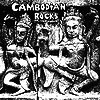 Back in the mid 90's, while en route to Angkor Wat, American tourist Paul Wheeler became captivated by a tape of 60's Cambodian rock which was played repeatedly by his driver. The music owed a lot to the US acid-rock and psychedelia of the period, BUT it was not just some listless copy of the Great Cultural Exporter's tunes... This was a vigorous, locally-inflected reinterpretation of the US psych sound by top-notch artists... And it rocked!
Back in the mid 90's, while en route to Angkor Wat, American tourist Paul Wheeler became captivated by a tape of 60's Cambodian rock which was played repeatedly by his driver. The music owed a lot to the US acid-rock and psychedelia of the period, BUT it was not just some listless copy of the Great Cultural Exporter's tunes... This was a vigorous, locally-inflected reinterpretation of the US psych sound by top-notch artists... And it rocked!
Wheeler never found out the names of any of the songs or artists, but by the time he got back to Phnom Penh, he was able to hum the tunes well enough to score copies from local cassette peddlars. When he got back to the States, he released the pick of them on a compilation called Cambodian Rocks.
In time, this CD would spawn a modest US-based rebirth of this music which had been cut off in its prime when the genocidal Khmer Rouge came to power in 1975. Now, some 8 years after its release, there is a whole series of Cambodian Rocks compilations available from the Khmer Rocks website (and these actually have track and artist info). In California, there are even two highly respected bands, Dengue Fever and Neung Phak, who play Cambodian style rock (Neung Phak also include songs from Laos, Vietnam, Thailand and Taiwan).
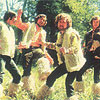 At the other end of the Asian continent is another country whose psych-rock history has recently become an object of Western hipster fascination - Turkey...
At the other end of the Asian continent is another country whose psych-rock history has recently become an object of Western hipster fascination - Turkey...
And, apparently, it is a long and rich history indeed. Where Western psychedelic music pretty much petered out at the beginning of the 70's, its Turkish cousin remained a big part of the local scene for much of that decade. This was probably helped in part by the fact that many of the artists simply used US acid-rock as a influence, and kept their roots firmly in Anatolian folk traditions. This is reflected both in the songwriting and instrumentation, which often relied as much on the oud, saz and darbuka as it did on your standard fuzzed-out guitar.
For a good introduction to this music, check out some of the articles on this Turkish prog site and track down the compilation CDs, Turkish Delights and Hava Narghile. If this whets your appetite and you want more, then have a rummage through the excellent collection of re-issues in the Middle Eastern section of Aquarius Records. (As always, there are streamed audio "highlights" from most of the albums listed.)
 Being an openly gay country music artist probably isn't that remarkable these days. Back in the early 60's, when Peter Grudzien started performing his lurching homo-bluegrass tunes in Greenwich Village bars, it was. Sometime in the decade that followed, he discovered psychedelic music, incorporated it into his Hank Williams/Johnny Cash inspired oeuvre and started producing some rather surreal shit. It all finally made it onto vinyl in 1974 with The Unicorn, an album of "madhouse hillbilly music from The Twilight Zone" (Jello Biafra). Want a sample? Check out White Trash Hillbilly Trick (lifted from the Aquarius Records site)
Being an openly gay country music artist probably isn't that remarkable these days. Back in the early 60's, when Peter Grudzien started performing his lurching homo-bluegrass tunes in Greenwich Village bars, it was. Sometime in the decade that followed, he discovered psychedelic music, incorporated it into his Hank Williams/Johnny Cash inspired oeuvre and started producing some rather surreal shit. It all finally made it onto vinyl in 1974 with The Unicorn, an album of "madhouse hillbilly music from The Twilight Zone" (Jello Biafra). Want a sample? Check out White Trash Hillbilly Trick (lifted from the Aquarius Records site)
 As a young man growing up in Lubbock, Texas in the 60's, Carl Norman Odam (aka The Legendary Stardust Cowboy) knew he was destined for great things (preferrably being the first man on Mars or, failing that, a country singer). To his end, he would drive around his hometown in his Chevy and conduct impromptu performances on its roof, "singing" songs in a style composed mainly of hog hollerin, elephant cries, rebel yells and - because he was part Shawnee - Native-American war whoops.
As a young man growing up in Lubbock, Texas in the 60's, Carl Norman Odam (aka The Legendary Stardust Cowboy) knew he was destined for great things (preferrably being the first man on Mars or, failing that, a country singer). To his end, he would drive around his hometown in his Chevy and conduct impromptu performances on its roof, "singing" songs in a style composed mainly of hog hollerin, elephant cries, rebel yells and - because he was part Shawnee - Native-American war whoops.
When it finally came time to spread his wings and leave Lubbock, he headed for New York where he hoped to ingratiate himself on his hero, Tiny Tim, and score a gig on The Johnny Carson Show... En route, he met a pair of vacuum cleaner salesmen who agreed to finance the recording of his first and only hit "Paralyzed". This completely unhinged slab of hoot'n'hollerin proto-psychobilly made it into the Billboard Top 100 and earned him an appearance on the prime-time TV variety show Laugh-In (regarded by Rolling Stone as one of "The Greatest Moments in Rock and Roll TV")
Sadly, he faded into obscurity after this, but in recent years he has gained a cult following and released a number of albums which can be purchased from his web-site. (Or, if you're a cheap, miserable varmint, you could always just download his 1998 live recording, Live In Chicago from emusic.)
(Final note of interest: The name of David Bowie's "Ziggy Stardust" character was, in fact, inspired by The Ledge.)
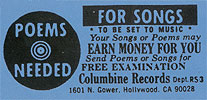 I don't know how prevalent they are now, but once upon a time, you could open any trashy magazine and find ads, like the one on the left, which offered wannabe Burt Bacharachs the chance to fulfill their dreams...
I don't know how prevalent they are now, but once upon a time, you could open any trashy magazine and find ads, like the one on the left, which offered wannabe Burt Bacharachs the chance to fulfill their dreams...
Naturally, they were all a bit of con. Starry-eyed respondents submitted their songs/poems (along with a not-insubstanitial fee) and received recordings of these tortured pennings with professional arrangements and backings... but that's as far as it went. There was no "free examination" or appraisal of the song's "hit" potential. The companies involved in the song-poem industry didn't give a toss about the quality of the lyrics they were sent. So long as the money rolled in, they would record anything.
(A famous example of this philosophy in action is A Blind Man's Penis by John Trubee. In an attempt to see just what he could he could get away with, Trubee submitted an ode with lyrics like "Stevie Wonder's penis is erect because he's blind" and "Warts loved my nipples because they are pink/Vomit on me, baby/Yeah Yeah Yeah". And, lo and behold, it was recorded (with minimal changes) and given the full Nashville treatment... As always, there's a sample of the song on the server at Aquarius Records).
The result of all this is a goldmine of truly bizarre vanity recordings, in which serious-about-their-art professional arrangers (like the much-loved Rodd Keith) do battle with almost unrecordable lyrical drivel. Some of the more memorable outcomes of these "struggles" have been compiled on The American Song Poem Anthology (which can be purchased from Aquarius Records, who also have real audio snippets from some of the songs). Alternatively, you can download mp3s of song poems from the extensive collection at The American Song Poem Music Archive.